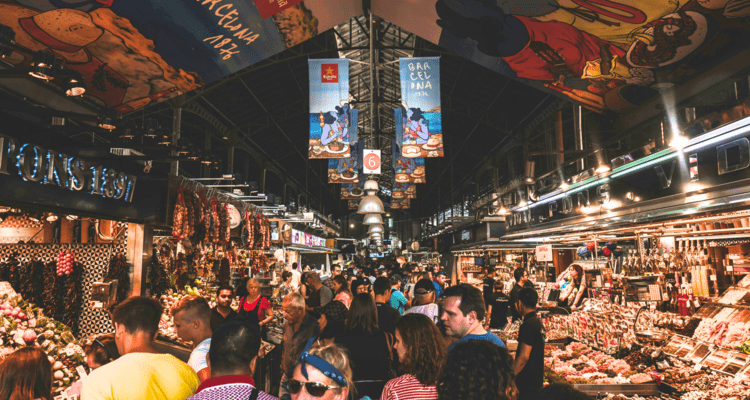The Food Sustainability Tool: A Decision-Making Asset in FoodCLIC
The FoodCLIC project’s Food Sustainability Tool (FST) is an innovative decision-support instrument designed to help policymakers, researchers, and citizens assess the greenhouse gas (GHG) emissions tied to food-related activities. Developed by the Euro-Mediterranean Center on Climate Change (CMCC), a consortium partner within the project, the tool evaluates GHG emission variations driven by the FoodCLIC Real Life Interventions (RLIs) on food systems and serves as a mechanism for promoting sustainable practices across city-regions. A series of three webinars, engaging about 30 experts, researchers, local administrators, and practitioners, took place between April and September 2024.
Objectives of the Food Sustainability Tool
The Food Sustainability Tool aims to assist in shaping food environments within city-regions by helping stakeholders understand and reduce the environmental impact of food consumption. Key areas of focus include:
- GHG Emissions Monitoring: Evaluating the changes in GHG emissions resulting from food-related interventions, enabling evidence-based policy and strategic planning.
- Comparative Impact Analysis: Facilitating comparisons across different types of actions to support scalable, impactful food system transformations in the city-region context.
Types of Real Life Interventions (RLIs) Analysed by the Food Sustainability Tool
The FST considers three main intervention areas reflecting the FoodCLIC Real Life Interventions, each with a distinct role in lowering GHG emissions:
- Menu Shifts in Canteens and Community Kitchens: This area examines the mitigation potential achievable when sustainable diets are implemented. Many FoodCLIC RLIs focus on promoting plant-based diets, seasonal food consumption, and food literacy to foster sustainable eating habits. These efforts include increasing access to healthy foods and incorporating urban farming initiatives in schools.
- Food Waste Reduction: This intervention targets avoidable GHG emissions by reducing food waste at the consumer level through educational initiatives and sustainable practices. Programs in this category range from food-sharing platforms to youth food literacy efforts and waste-reduction training for food service professionals.
- Local Food Promotion: This area assesses the effects of shortening food supply chains and reducing transport distances. Interventions focus on enhancing the availability of locally produced foods by supporting local farmers, promoting sustainable practices, and creating short supply chains that connect communities with nearby producers.
Conclusion
The Food Sustainability Tool offers a resource for advancing food system sustainability by supporting informed decision-making, policy development, and comparative studies across regions. As part of the FoodCLIC project, it empowers city-regions to take actionable steps toward reducing food-related emissions and transforming their food environments sustainably.
More about CMCC
The CMCC Foundation (Euro-Mediterranean Center on Climate Change) is an international, independent, multi-disciplinary research center that studies the interaction between climate change and society. CMCC conducts advanced climate research, producing cross-cutting and multidisciplinary analyses and data that combine first-class climate modelling with climate change impact modelling and environmental economics. CMCC activities aim to ensure reliable, rigorous, and timely scientific results that stimulate sustainable growth, protect the environment, and develop science-driven adaptation and mitigation policies in a changing world. CMCC provides the crucial scientific insight needed for a successful transition to a sustainable future by offering foresight and quantitative analysis on our future planet and society.
For further details contact the authors of this article from CMCC:
Gabriele Pizzileo, gabriele [dot] pizzileo [at] cmcc [dot] it
Maria Vincenza Chiriacò, mariavinvecenza [dot] chiriaco [at] cmcc [dot] it
Marta Antonelli, marta [dot] antonelli [at] cmcc [dot] it
Publishing date:
FOODCLIC. We are connecting people, food, policy & places.
FoodCLIC is a four-year project funded by the EU. The project runs from September 2022 to February 2027. The acronym FoodCLIC stands for 'integrated urban FOOD policies – developing sustainability Co-benefits, spatial Linkages, social Inclusion and sectoral Connections to transform food systems in city-regions


